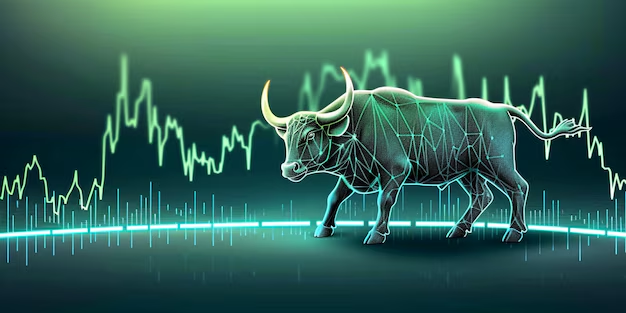Artificial intelligence (AI) is transforming numerous industries, and forex trading is no exception. With its ability to analyze vast amounts of data, recognize patterns, and adapt to changing market conditions, AI is reshaping how traders approach the forex market. In this blog, we’ll explore the impact of AI on forex trading apps and discuss what the future may hold for traders and technology.
1. Enhanced Data Analysis and Insights
AI algorithms can process and analyze large datasets far more efficiently than human traders. Forex trading apps equipped with AI capabilities can provide traders with:
- Predictive Analytics: AI can analyze historical price movements and market trends to predict future behavior. This helps traders make informed decisions based on potential outcomes.
- Sentiment Analysis: By examining social media, news articles, and financial reports, AI can gauge market sentiment. This information can be crucial in understanding how news events may impact currency pairs.
2. Automated Trading Strategies
One of the most significant impacts of AI on forex trading apps is the development of automated trading strategies. These systems can execute trades based on pre-defined criteria without human intervention. Key benefits include:
- Speed and Efficiency: AI can execute trades within milliseconds, capitalizing on market opportunities that a human trader might miss.
- Emotionless Trading: AI systems do not experience emotions like fear or greed, which often lead to poor trading decisions. This results in more consistent trading performance.
3. Personalized Trading Experience
AI technology enables forex trading apps to offer a more personalized trading experience. By analyzing individual trader behavior and preferences, these apps can provide:
- Customized Alerts: Traders can receive real-time alerts tailored to their specific trading strategies and goals, ensuring they are always informed about relevant market movements.
- Adaptive Learning: AI can learn from a trader’s previous decisions, refining its recommendations over time to better suit their trading style.
4. Improved Risk Management
Effective risk management is crucial for successful forex trading. AI can enhance risk management practices through:
- Dynamic Risk Assessment: AI algorithms can continuously assess market conditions and adjust risk parameters in real-time, helping traders mitigate potential losses.
- Stop-Loss and Take-Profit Optimization: AI can suggest optimal stop-loss and take-profit levels based on market volatility and historical price movements.
5. Integration of Natural Language Processing (NLP)
NLP is a branch of AI that allows machines to understand and interpret human language. In forex trading apps, NLP can be used for:
- Market News Summarization: AI can summarize and analyze news articles, providing traders with concise insights that may affect their trades.
- Voice-Activated Trading: With NLP, traders can execute trades or receive market updates using voice commands, making trading more accessible and efficient.
6. The Future of AI in Forex Trading Apps
As technology continues to advance, the role of AI in forex trading apps is expected to grow. Here are some potential developments we might see in the future:
- Advanced Predictive Models: Future AI systems will likely employ more sophisticated predictive models, using machine learning techniques to enhance accuracy and reliability.
- Enhanced User Interfaces: AI could lead to more intuitive user interfaces that adapt to traders’ behaviors, making it easier for users to navigate complex data and features.
- Greater Collaboration Between AI and Human Traders: Rather than replacing human traders, AI will likely work alongside them, providing tools that enhance decision-making while allowing traders to retain control.
7. Challenges and Considerations
Despite its advantages, the integration of AI in forex trading apps also comes with challenges:
- Data Quality: The effectiveness of AI algorithms depends on the quality of data they analyze. Poor data can lead to inaccurate predictions and trading outcomes.
- Over-Reliance on Technology: Traders must be cautious not to rely solely on AI. Understanding market fundamentals and maintaining critical thinking are essential for successful trading.
- Regulatory Considerations: As AI in trading grows, regulatory frameworks may need to adapt to ensure transparency and protect traders.
Conclusion
AI is revolutionizing forex trading apps, offering enhanced data analysis, automated trading, personalized experiences, and improved risk management. As technology advances, we can expect even greater integration of AI into trading platforms, making them more efficient and user-friendly. However, traders should remain vigilant about the challenges and ethical considerations associated with AI. By combining AI’s capabilities with human insight and experience, traders can navigate the forex market more effectively and capitalize on emerging opportunities. The future of forex trading is undoubtedly intertwined with AI, and those who embrace this technology will likely gain a competitive edge.
4o mini

